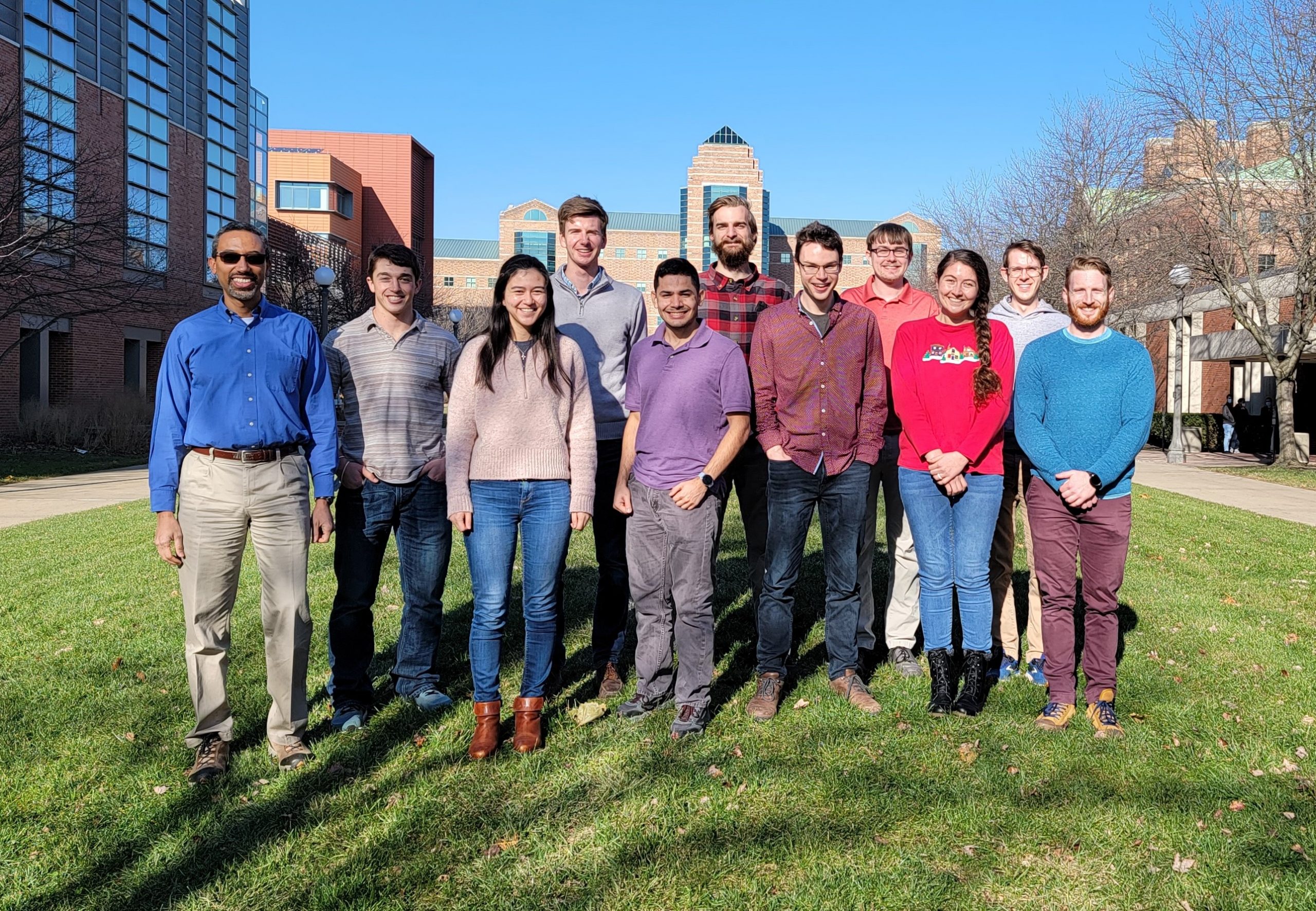
Back Row (left to right): Phil, Reid, Kurt, Dylan, Chris A.
Front Row: Dr. Alleyne, Kayla, Frank, Chris U., Cary, Spencer.
We are a systems and control lab in the Mechanical Science and Engineering Department at the University of Illinois and the Mechanical Engineering Department at the University of Minnesota directed by Professor Andrew Alleyne. Our work consists of dynamic modeling of complex systems as well as the development and implementation of advanced control algorithms on a number of different experimental test beds.
Broadly speaking, control theory is the science of how to make systems behave in a chosen manner (i.e., how to “control” them) by supplying the proper inputs to achieve a desired set of outputs. For example, consider the cooling system in a large building. The objective is to deliver cool air to different rooms to achieve a temperature dictated by the occupants of each room. Control theory is used to answer questions such as:
- To what temperature should the supply air be cooled to achieve the desired room temperature?
- How much chilled water must be pumped through the system to ensure that local temperature demands are met?
- What is the optimal fan speed for moving air through the building?
Answering these questions is critical to ensuring that resources, in this case chilled water and energy, are used efficiently and effectively.
Similar questions can be posed for almost any system. In our lab we work on a range of applications, including precision motion control from the macro to the nanoscale, hybrid-hydraulic vehicles, and HVAC systems. Moreover, we utilize a breadth of control techniques, including Iterative Learning Control (ILC), Gain Scheduling, Model Predictive Control (MPC), and advanced PID. Control theory provides us with a set of mathematical tools which allow us to improve and optimize various objectives for these different systems.
Please visit our Research page to learn more about the work we are doing in the ARG. To learn more about the people in the ARG, visit the ARG Gallery.